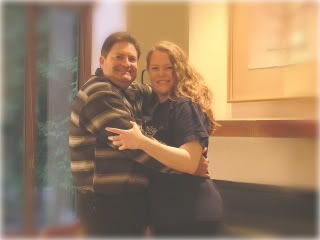
Saturday, August 22, 2009
Two Hunny's

Thursday, August 20, 2009
Off-Grid...
Living off-grid is by no means new, even though it is fairly new in the consciousness of most since being popularized by television and celebrities. Think about the settlers of this land, Native tribes, and numerous other peoples around the globe; none of them were tied in to utilities. Being off-grid is not out of the ordinary anymore- Home Power Magazine reported in 2006 that the number of families living off-grid has jumped 33% each year for a decade. Importantly, the phrase does not refer to 'being off one's rocker', although there are those who feel folks actually choosing this manner of living are just that. :-) Nor is it to be confused with being 'off the map' , 'under the radar', nor any other extreme notion referring to a desire to completely disappear from the company of society.
The grid does refer to any one of several public utilities- electric, water, sewer, gas. Being off-grid, then, is living without reliance on any one or more of said utilities. A truly off-grid home is able to operate independently of all traditional utility services. This is our personal goal (more on that later.)
The answers as to 'why' are as varied as the folks you could ask. Many reasons are similar, some unique, a few honestly strange. Too each his/her own! The top two reasons are saving money and reducing carbon footprint. Others include unavailability of utilities to rural land, financial hardship to connect, survivalist philosophy, spiritual connectedness.
"All very interesting, but what are your reasons, Tom and Krystal?" Alright already, hold your horses! Our main reasons, detailed below, are: financial freedom, environmental responsibility togetherness, and health. However, many of the above mentioned reasons play a small part, also.
Financial freedom: We want to retire from the city work-a-day world, live simply and inexpensively, raise what we eat-eat what we raise, be mortgage-free and have no utility bills. Being off-grid allows for these. Such living is a wealthy life, even if one may be cash poor. This concept, unfortunately, was mostly lost with our grandparents generation.
Environmental responsibility: Traditional utilities are wasteful, incredibly destructive to the environment, and pose a danger to health. We feel a personal responsibility to live in harmony with nature as much as possible, within reason, not "ruining the earth." For each person this is different based on ability, practicality and willingness. We are able to choose a rural life and going off-grid. We have been doing what we can in an urban environment and encourage you to, also. It's fun to utilize low-tech ways to be self-sufficient, especially for children!
Togetherness: Trying to make a living is so busy and stressful! It eats up tons of time and energy and makes us feel isolated from one another. We love spending time together caring for the animals, working on projects, serving our God, gardening, cooking, to just be. Tom retiring to our very own ranch would be a dream come true for us both!
Health: Clean air, fresh water, natural home-grown food, animal husbandry, gathering our own wood for heat and cooking, exercise engaging in such outdoor activities, less stress, pure enjoyment of life as we were created- what could be more healthy, both physically and mentally!!!
As briefly mentioned earlier, our goal is to be 100% off-grid. Although each alternative system we install will be discussed in future posts, most likely individually for lots of detail and information (more than you may even want to know on some!), here is a list:
super-insulated, active solar, straw bale home thus reducing needs for heating and cooling; wood, both a renewable and sustainable resource, for heating and cooking; greywater system instead of septic; 'dry' toilet; photovoltaic solar array for generating our own electricity; possibly wind turbine for power generation on stormy days; solar and wood heated water; rainwater harvesting; composting for renewable/sustainable fertilizer needs; using less electricity in general; well or spring water. That just about covers it!

Friday, August 14, 2009
Architect On Board

Ferry County requires anyone building a home with alternative methods, like our choice of strawbale, to have the plans submitted for a building permit to be drawn and wet-stamped (signed) by an architect. Further, this architect has to be licensed in the state of Washington. Last but not least, it is much preferred he/she have experience with strawbale. They certainly don't make it easy for a person to build an environmentally-friendly house! And we sure don't feel like being 'pioneers' to the extent of fighting about it.
The search began several months ago when I first learned of the requirement. We found Kelly Lerner, of One World Design in Spokane, WA. She has extensive experience and knowledge of strawbale construction, is a published author on green building, and is an award-winning designer, recognized around the world, quoted and highlighted in numerous books and articles on strawbale. Two weeks ago we had a telephone consultation with her to compare notes, so to speak. Thankfully, she understands our vision and is excited about it. We love her approach to design and building, that of being in harmony with your natural surroundings. We are delighted to welcome Kelly on board as our designer/architect and look forward to learning from her! I can't believe we have the help of such a talented lady. Do visit her website to see just a sampling of her amazing work. I can only imagine the wonderful things she will bring to our wonderful little house!
Kelly will be joining us in Republic for a couple days of our Fall trip, to talk about house and site plans. Although, I already created a house plan, a pleasant past-time of mine since childhood, and a general site plan.
Following is an article which expounds our main reasons for wanting to build with strawbale. Therein you will find links for more detailed information and a nice YouTube video. Enjoy!
Why Build With Straw Bales?
Straw bale construction lends itself well to an owner builder project. Some of the applications well suited for straw bale include: a cottage, office, garage, studio, and an art barn. You don’t have to limit yourself to these smaller projects. Thousands of people have successfully built their own straw bale house. As a world leader in straw bale education we want to help you every step of the way.
I’ve created a great introductory video on why to build with straw bales. You can watch that by clicking the play button below. Please read on for more reasons to build with straw bales!
Here are 7 great reasons why you should consider building your next house with Straw Bales:
Reason #1 Energy Efficiency.
A well built straw bale home can save you up to 75% on heating and cooling costs. In fact, in most climates, we do not even install air conditioning units
Reason #2 Sound Proofing.
Straw bale walls provide excellent sound insulation and are superior wall systems for home owners looking to block out the sounds of traffic or airplanes in urban environments.
Reason # 3 Fire resistance.
Straw bale homes have roughly three times the fire resistance of conventional homes. Dense bales mean limited oxygen which in turn means no flames.
Reason # 4 Environmental responsibility.
Building with straw helps the planet in many ways. For example, straw is a waste product that is either burned or composted in standing water. By using the straw instead of eliminating it, we reduce either air pollution or water consumption, both of which impact the environment in general.
Reason #5 Natural Materials
The use of straw as insulation means that the standard insulation materials are removed from the home. Standard fiberglass insulation has formaldehyde in it, a known carcinogen. Bale walls also eliminate the use of plywood in the walls. Plywood contains unhealthy glues that can off-gas into the house over time.
Reason #6 Aesthetics
There is nothing as calming and beautiful as a straw bale wall in a home. Time and time again I walk people through homes and they are immediately struck by the beauty and the “feeling” of the walls. I really can’t explain this one, you’ll just have to walk through your own to see what I mean.
Reason #7 Minimize wood consumption.
If built as a load bearing assembly, the wood in the walls can be completely eliminated, except for around the windows. The harvesting of forests is a global concern and any reduction in the use of wood material is a good thing for the long term health of the planet.
Even infill bale homes can reduce the use of wood by using engineered lumber for the posts and beams. The engineered material uses smaller, faster growing trees in place of larger, slower growing species.
ABOUT THE AUTHOR
Andrew Morrison is the founder and owner of A. C. Morrison Construction, LLC, a company specializing in straw bale construction. Andrew has a passion for straw bale construction that is matched only by his desire to teach his knowledge to others. Andrew is the creator and builder of the Straw Bale Village, a community of 15 straw bale homes in the National Historic Landmark City of Jacksonville, Oregon. He is a skilled, licensed General Contractor (CCB License #161204) with experience in designing and building both conventional and straw bale homes. Andrew has owned A. C. Morrison Construction, LLC, since 1996. Andrew received a BA degree from Hampshire College in 1995 for Glacial Geology. He also has a degree in construction technology. Please visit his professional web site at: www.StrawBaleConstruction.net